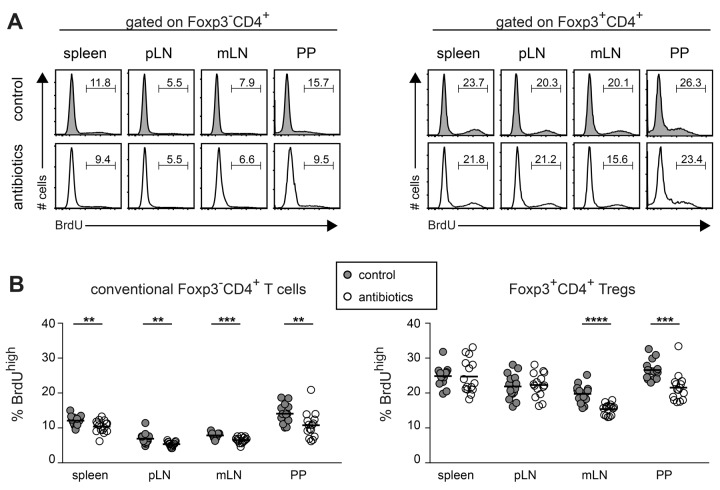Fig. 3.
Reduction of commensal microbiota affects in vivo proliferation of conventional CD4+ T cells and Foxp3+ Tregs. Adult SPF-housed C57BL/6 mice were treated with antibiotics for a period of approximately eight weeks. Two days after the treatment was stopped, mice were fed with BrdU for another period of six days. Subsequently, lymphocytes from indicated organs of antibiotics-treated and untreated control mice were analyzed for BrdU, CD4 and Foxp3 expression by flow cytometry. (A) Representative histograms show BrdU incorporation in Foxp3–CD4+ T cells (left) and Foxp3+CD4+ Tregs (right) in indicated lymphoid organs from untreated controls (gray shaded) and antibiotics-treated mice (open). Numbers indicate frequencies of BrdUhigh cells among respective CD4+ T cell subset. (B) Graphs summarize frequencies of BrdUhigh cells among conventional Foxp3–CD4+ T cells (left) and Foxp3+CD4+ Tregs (right) from untreated controls (gray filled circles) and antibiotics-treated mice (open circles). Pooled data from three independent experiments are depicted. Circles represent values from individual mice and lines indicate mean (n = 15)

